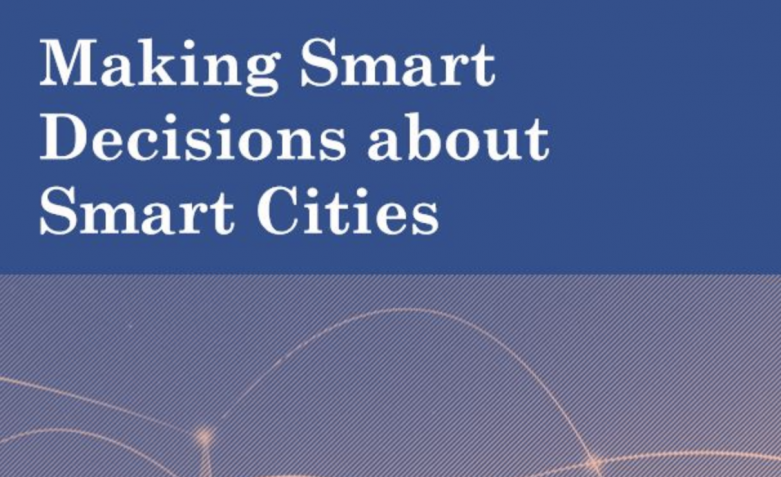Article Media

“Smart city” products are often touted as cost-efficient solutions to providing government services and addressing societal challenges, but in reality, these technologies are no more intelligent than the data and algorithms behind them. Like other tools, their effectiveness depends on when, where and how they are used. These technologies can cause real harm to people—they have the power to exacerbate racial or economic inequality and can expose deeply personal information to law enforcement or private parties.
In other words, it's not smart to assume that any given “smart city” technology will benefit your city. A truly smart city looks beyond the glossy flyers and digs into the nuts and bolts of any tech-centric initiative to determine whether and how to proceed. And it does that with the help of the entire community.
This guide can help you do just that. It provides a step-by-step approach to several key components of this work: evaluating data-driven urban technologies and the risks and costs they may entail, drafting policies and contracts that can mitigate potential harms, and collaborating with the community to decide whether and how to proceed with smart initiatives at all. The guide features real-life case studies that help highlight the benefits of making informed decisions about technology rather than trusting the technology to be smart for you.
We hope you find it helpful in making smart decisions about smart cities.
Download the guide »
Learn more
Blog Post: How to Make Smart Decisions About Smart Cities
Guide: Making Smart Decisions About Surveillance
Activists and advocates speak out in Fresno, Oakland, & Santa Clara
